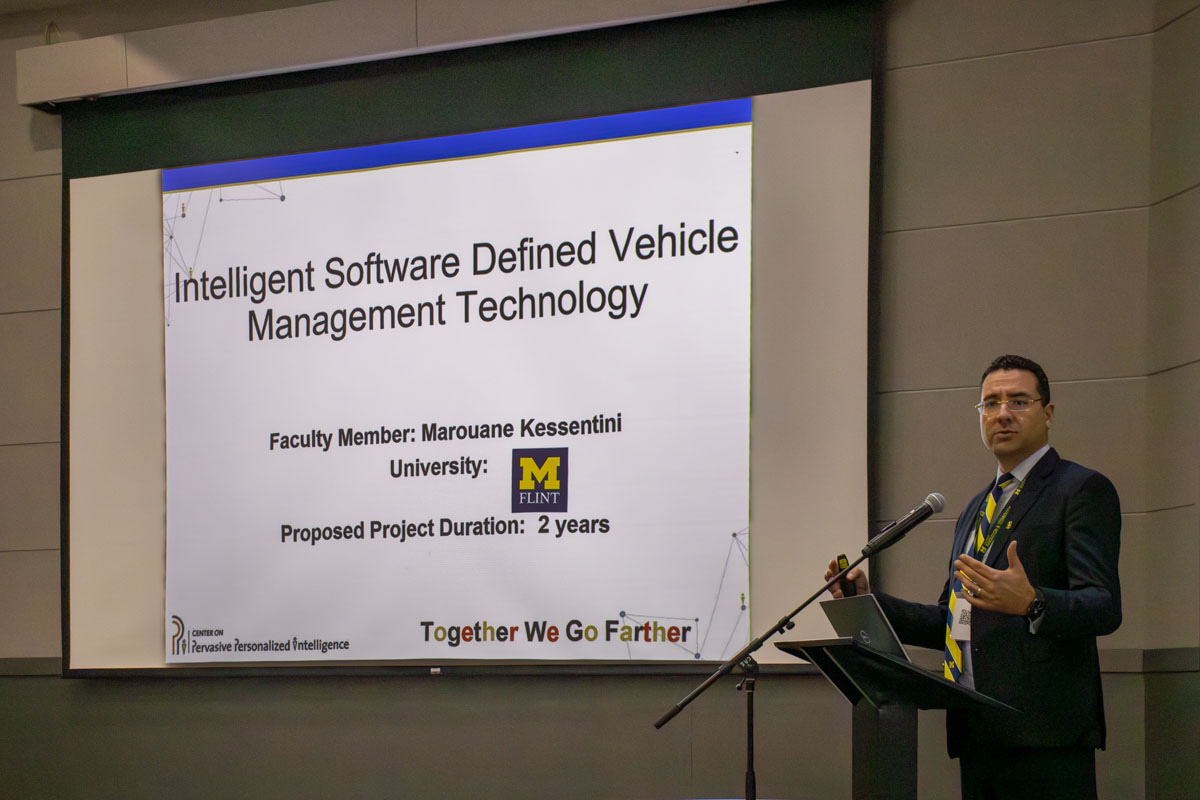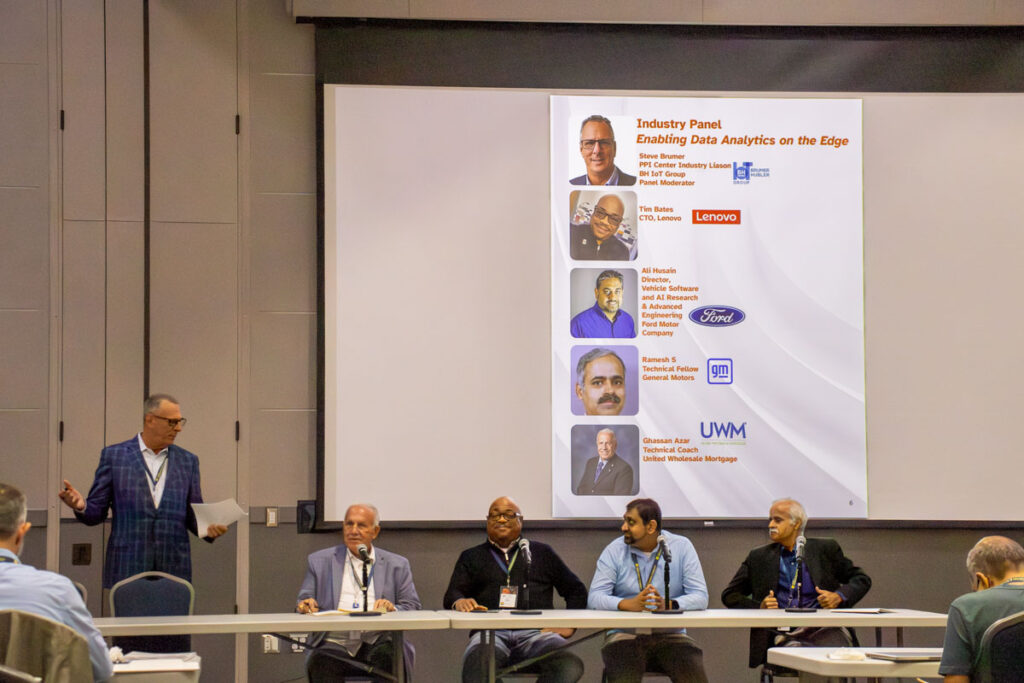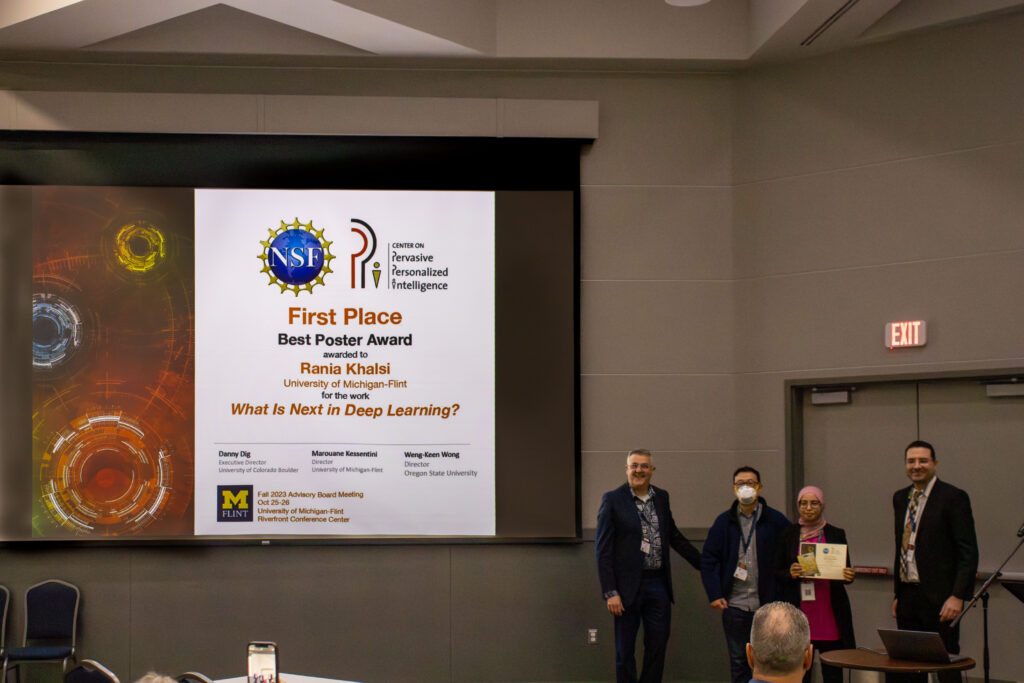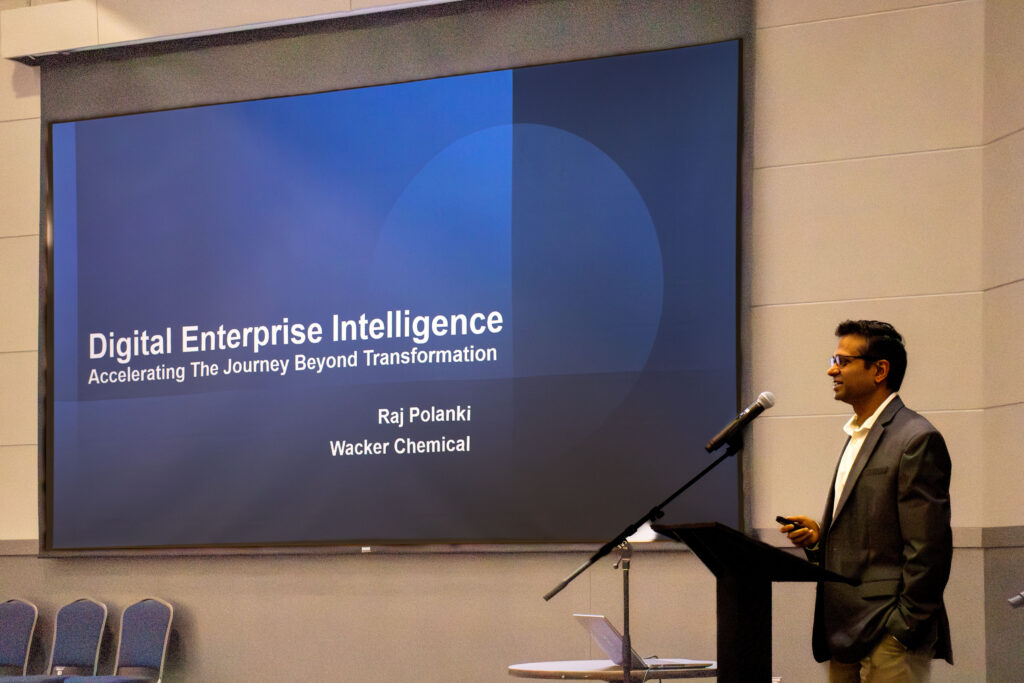UM-Flint hosts industry, researchers for Pervasive Personalized Intelligence conference

Customers are increasingly expecting companies to be able to anticipate and meet their needs and expectations automatically, without prompting or effort on their part. Brands are spending hundreds of billions of dollars to understand and meet those needs seamlessly with the help of emerging technology such as the Internet of Things. To help bridge the gap between industry and academia working in this space, the University of Michigan-Flint's College of Innovation & Technology hosted the Fall 2023 Advisory Board Meeting for the Center on Pervasive Personalized Intelligence, Oct. 25-26, at the Riverfront Conference Center. The PPI Center is a National Science Foundation Industry-University Collaborative Research Center focused on developing the capabilities of PPI and encouraging its widespread adoption.
PPI site directors from UM-Flint, the University of Colorado-Boulder and Oregon State University, along with faculty and student research teams from those institutions, joined industry representatives from leading tech companies to discuss collaborations on industrywide challenges in building a world where IoT devices make better experiences for the consumers of today.
Industry leaders weigh in
A panel of industry leaders from Lenovo, United Wholesale Mortgage, the IoT Group, and other organizations spoke to their immediate needs in the workforce, the kinds of problems they're looking to solve, and how AI and machine learning tools can help them process all of the sensor data coming in from IoT devices. "Data is cheap, 'compute' is expensive," said Tim Bates, CTO of Lenovo. Ghassan Azar, technical coach at UWM, echoed this sentiment.
As the meeting was centered around edge computing, Bates also helped to explain it. "Think of a device like a game console, tablet or mobile device that can compute and transmit data. Those devices could be placed in a vehicle, office, or data center and process much of the data from nearby sensors and also transmit information to the cloud."

Steve Brumer, PPI Center industry liaison said that edge computing applications target three main areas:
- Improving data security.
- Enabling edge devices to be autonomous and make quick decisions.
- Reduce data transfer time back and forth between the devices and cloud servers.
Brumer also said that a serious shortage of high-level workers in many of these fields is looming. "Many of the experts in IoT and other emerging technology leaders are getting up there in years. We need to get more people 25 years old and younger to get interested in joining these fields."
Student Researcher Involvement
One key benefit of the PPI Center is that it creates a quick feedback loop from industry leaders for the students to learn how their projects can make an impact in the marketplace. These leaders advise the students on the most useful things to spend their time on, what conferences they should attend and how their ideas may translate to the market.
Some students were working on ways AI tools can be used to "refactor" or clean up batches of code to be simpler and more elegant. Other students addressed the ways that tools can more efficiently process moving objects from video inputs.
Many of the projects are aimed at developing more efficient ways to filter and process large data blocks because industry leaders need to have massive data processing capabilities in smaller spaces.
PPI Center students are working on solving cybersecurity problems, issues around deepfake video detection, and some of the ways that augmented reality can improve both workplaces and relationships with nature.
When Brumer asked the industry leaders how these students should prepare for the workforce, Azar said, "Embrace math. Your degree may be very specific, like game design. Don't worry that you will only be able to get a job in that niche. Just embrace math and you will be able to get a job anywhere because it is the backbone of all of these things that are coming."

These student researchers gave lightning talks, where they quickly presented their posters to the board of faculty and industry partners. They received direct feedback and were entered into a competition for best poster.
PPI faculty projects
There are a dozen collaborative research projects that PPI faculty are working on. Faculty members design these projects by identifying industry needs and work to deliver usable results that can be easily modified to apply in multiple industries.
Marouane Kessentini, associate CIT dean and PPI site director, talked about his new research project to explore innovative ways the many software containers in a smart car can be managed so that computing and connectivity can happen in less space.
Projects have potential applications in diverse fields. Khalid Malik, professor and director of the UM-Flint Cybersecurity Center, explained his project that will create AI image models that will be useful in both the medical field by helping predict subarachnoid hemorrhage and also aid in deepfake detection. This project will also use AI models to make information sharing in the medical field more personalized, understandable, and secure.
Doug Zytko, associate professor of human centered design and director of UM-Flint's PhD program in computing, proposed a project centered on directly involving customers in the design process of the interfaces of AI-integrated products.
Ellen Do, professor of computer science at UC Boulder, along with her students, presented ways that augmented reality can improve individuals' perception and understanding of the world around them.
Between presentations, there were many breaks for attendees to mingle and connect with each other. "Often it is in those moments that interdisciplinary projects spring up," said Ken Sylvester, director of UM-Flint's Office of Research and Economic Development.
Industry Keynote

On Oct. 26, Raj Polanki, head of analytics & data science at Wacker Chemical Corporation, delivered a keynote address connecting these threads to the big picture today. "The best companies today aren't improving existing technologies," said Polanki. "The best companies today are starting with problems to solve and inventing new technologies."
Much of this conversation revolves around preparing the students of today for an ever-changing workforce. Polanki said, "It's important for students of all ages to realize that being involved in these emerging technologies can enable them to solve some of the most pressing problems of our time and also secure a good financial future for themselves."
Related Posts
No related photos.
Rob McCullough
Rob McCullough is the Broader Impacts Manager for the College of Innovation & Technology. He can be reached at romccull@umich.edu.